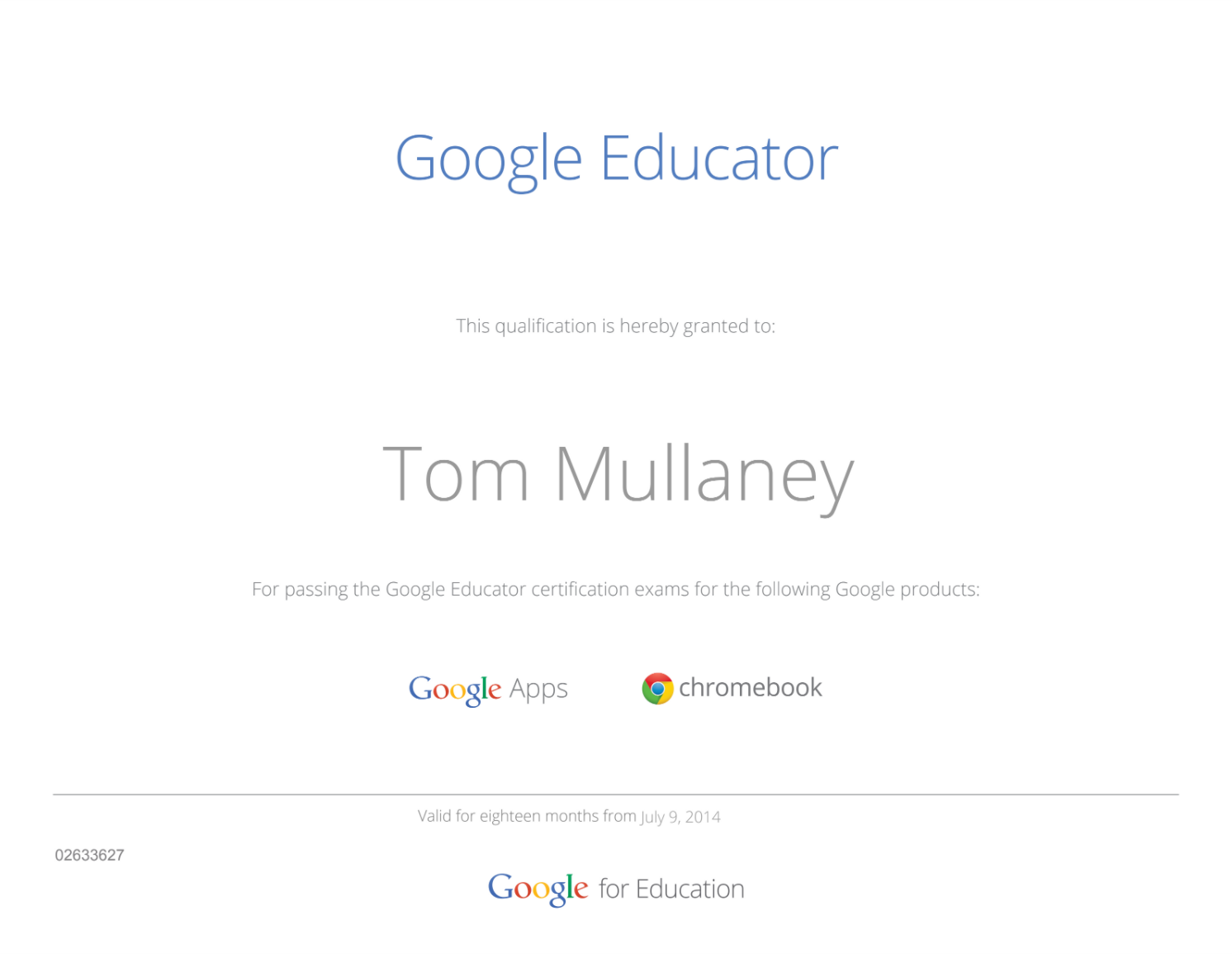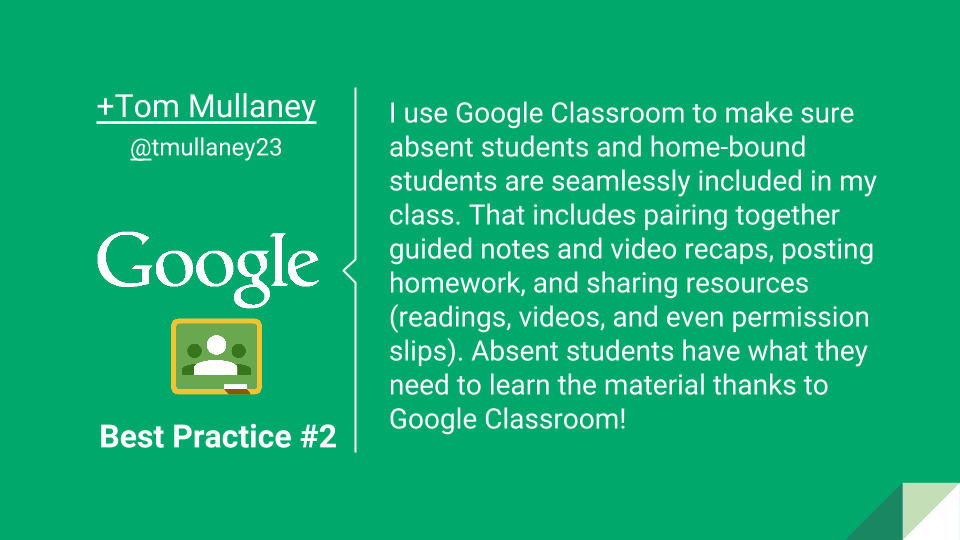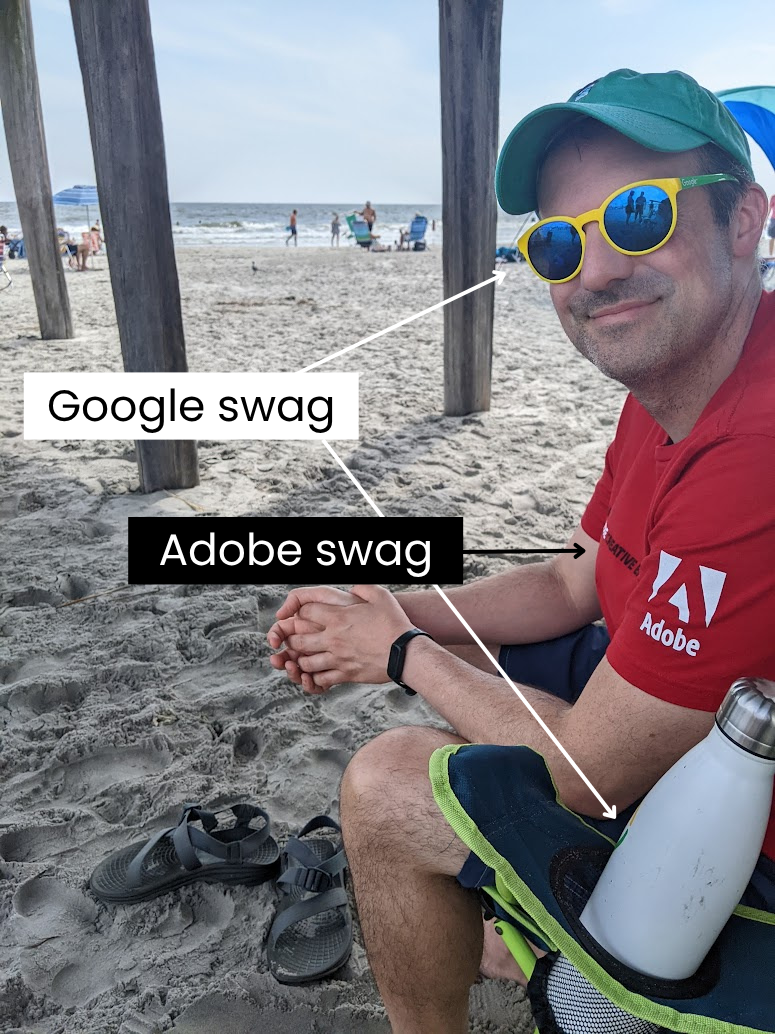From Fanboying To Thinking - My Journey With EdTech
**OUR CONFERENCE IS THIS WEEK**
Join Us on July 31 & Aug 1
Are you registered yet? If not, use this link. On Wednesday (July 30) you’ll receive instructions on how to access the conference sessions. But only if you’ve registered!
Check out our conference schedule! Head over to our conference page to preview the schedule.
And check out our conference preview! In case you missed our blog post a couple weeks back, we gave an overview of our keynote speakers and some of our great sessions.
There’s also a book club! We’re reading Empire of AI, by Karen Hao, and we’ll be holding our book club conversation at the end of our first day of our conference: Thursday, July 31 at 3:00 PM Eastern Time. See more on our events page.
And Don’t Forget Our Next Tech Talk! Join us for our monthly tech talk on Tuesday, August 5th from 8:00-9:00 PM EST (GMT-5). Join an informal conversation about events, issues, articles, problems, and whatever else is on your mind. This will be a great place to share your highlights from the conference! Register here or visit our events page.
From Fanboying To Thinking - My Journey With EdTech and How Teachers Can Center Equity and Critical Thinking
Post By Tom Mullaney
Prestige and recognition. Recognition and prestige.
Growing up middle-class in America often means that K-12 students chase these two things. From gold stars to the Honor Roll, to Honors classes, to AP classes, to high SAT scores, and ultimately to acceptance into a prestigious college or university, students are trained to achieve in pursuit of recognition and prestige.
I attended and graduated from George Washington University, a school that had a fair share of students like myself who were rejected by a more prestigious institution just two miles away, Georgetown University, so I am familiar with the successes and failures of that pursuit.
Three years after graduating, I switched careers, teaching Special Education and later secondary Social Studies. As my teaching career progressed, my web-programmer wife and I made friends who, like her, worked in technology. One friend worked at Twitter before...well, you know.
Listening to them talk about their cool jobs, mine seemed like mining a cave in Northern Greenland. My lesson about the Three Rs of the New Deal could be fantastic, but no one outside the walls of my school knew or cared. Teaching can be a very isolated profession. Many teachers were once K-12 students chasing recognition and prestige, but the profession affords little of either.
This lack of prestige and recognition is an opening for EdTech companies.
The Chromebooks Arrive
I'll never forget a conversation with my principal where he casually mentioned that next school year, 8th and 9th grade students would be part of a 1-to-1 Chromebook pilot program. I taught 8th and 9th-grade students. I was so excited. I took Google for Education's "Google Educator" course to familiarize myself with their products. I slapped my shiny certificate on my principal's desk, and that little bit of shine from a tech giant made me the building tech expert.
Diving in Deep
I went all in. As a teacher who struggled to keep up with endless handouts and student work, an automated, paperless system was perfect for me. I started blogging and tweeting about using Google tools. Google themselves noticed, shouting out my absent student practice on Google+ (that's how long ago this was!)
I applied for and received recognition as a Google for Education Certified Innovator on my third try. Notice that recognition and prestige, Google declared me an innovator, and not just anybody could be an innovator, as I learned the hard way from my two failed attempts. I was even invited to participate in a Google for Education-sponsored SXSW EDU panel (talk about prestige!) and their YouTube show, EDU on Air. I dove so deeply into the technology that I left teaching, first to be a school-based coach helping teachers integrate technology, and later to be an independent consultant providing professional development.
EdTech companies, big and small, copied Google's approach to building fans and communities. Teachers can be innovators, ambassadors, or earn badges through participating in quick online courses. Companies also innundate teachers with swag: free t-shirts, pens, stickers - any merch that generates low-cost publicity. I have indulged in some of this swag, so much that I looked like an EdTech-sponsored race car at the beach.
To this day, the only wireless earbuds I have ever owned are a pair from Skullcandy, which had a long-ago worn-off Adobe logo on their case. Thanks, Adobe!
I'm not the only one. The #TechTShirtTuesday hashtag on Twitter is teachers sharing pictures of themselves wearing t-shirts from #EdTech companies. Strategies, practice, and critiques are rarely, if ever, mentioned in the tweets. It's a hashtag of teachers advertising for EdTech companies for free.
The Stochastic Parrots Paper and Generative AI
I did not realize it at the time, but my all-in, enthusiastic approach to EdTech started to change in late 2020 when I saw a news item about Dr. Timnit Gebru, co-leader of Google’s AI ethics team, losing her job after co-authoring the Stochastic Parrots paper about Large Language Models’ amplifying racism and ecological harm. I don't want to amplify racism and ecological harm. At the time, generative AI was not something I had delivered professional development on, so I put it aside; however, my discomfort was an awakening that expanded in the age of generative AI.
Since November 2022, I have listened to Gebru and her co-authors, whose research raises concerns about the harms and limitations of generative AI. For example, the Mystery AI Hype Theater 3000 podcast, co-hosted by Emily M. Bender and Alex Hanna, has been a valuable source of information that demystifies generative AI hype.
As these researchers rung the alarm bells, hype about generative AI in education took off with multiple books on the subject published by Spring 2023. This discord accelerated my consideration of the gap between promises about technology and the often unpleasant reality.
If only all K-12 teachers listened to Mystery AI Hype Theater 3000! Absent that, here are some ideas about how teachers can approach generative AI and educational technology in ways that center equity and critical thinking.
How Teachers Should Engage With EdTech Tools and Companies
The Technoethical Approach
Daniel G. Krutka, Marie K. Heath, and K. Bret Staudt Willet suggested a technoethical approach for educators. Beyond the fundamental question,"Is this technology ethical?", they suggested these sub-questions:
Was this technology designed ethically and is it used ethically?
Are laws that apply to our use of this technology just?
Does this technology afford or constrain democracy and justice for all people and groups?
Are the ways the developers profit from this technology ethical?
What are the unintended and unobvious problems to which this technology might contribute?
In what ways does this technology afford and constrain learning opportunities about technology?
Considering what we know about the documented harms of generative AI, such as amplification of racism and misogyny, environmental degradation, theft from creatives, and exploitation of content moderators, these questions could stir interesting conversations with stakeholders such as students.
Be Careful of EdTech Company Communities
Teachers want to connect with like-minded educators excited about tools and strategies. I get it. And take care. Companies give badges, swag, and titles such as "Certified Innovator," "Ambassador," and "Certified Trainer" to promote their product. If you get something valuable from a community, such as connection with other teachers, that's fine. However, be cautious about becoming a marketing intern for a tech giant. One obvious red flag is an email with guidance about how to promote feature updates on social media. Your time is better spent on something else. Additionally, don't let the enthusiasm block critical thinking. Be open to arguments that, in some instances, such as learning about historical figures, technology is not the solution.
Acknowledge Technosolutionism
Bender and Alvin Grissom II defined "Technosolutionism" as "the culture of optimism around technology where every idea is sold as solving problems and the solutions are rarely critically examined." When someone proposes a technological solution to a pedagogical problem, interrogate their arguments.
Speaking of Bender and Grissom II, they also posed a helpful question for teachers to consider when evaluating the use of technology: "Who will the technology be used by/for/on, and who might be harmed, by being excluded -- or included?"
Apply the Baldwin Test
The Baldwin Test “seeks transparency and something closer to truth by describing artifice” according to Northwestern University PhD candidate Charles Logan. The first commitment of the Baldwin Test is, “Be as specific as possible about what the technology in question is and how it works.”
This approach is perfect for interrogating generative AI in the classroom. For example, if an LLM such as ChatGPT is suggested as a "thought partner," teachers can ask:
Don't thought partners require thought?
Why are LLMs better as "thought partners" than classmates or teachers?
What features of LLMs make them good "thought partners"?
Is an LLM "thought partner" better for learning than brainstorming and productive struggle?
Discard the "Schools and Teachers Are Stuck in the Past" Argument
This argument aims to pressure teachers to adopt technology, lest they become outdated. You may have heard K-12 compared to a "factory model." Audrey Watters took down that argument in her essay, The Invented History of 'The Factory Model of Education'. You might also hear schools are stuck in the 1980s, 1990s, or another past decade.
As someone who attended K-12 schools in the 1980s and 1990s, I know how wrong this is. Schools and teachers are labelled archaic when their funding is both being slashed and based on tax bases divided by racist redlining. Let's attack segregation and inequity. Then we can consider technosolutionist claims that schools are outdated.
Avoid Brand Loyalty and the Google Graveyard
Don't give your undying allegiance to any tech company or product. If something works better than what you're using, switch and don't look back. Becoming too dependent on any single EdTech app can cause problems. Just ask teachers who used apps such as Expeditions and Jamboard that have gone to the Google Graveyard. What about those who used Flipgrid (later Microsoft Flip)? In 2018, Microsoft acquired what was then Flipgrid and said, “...It [Flipgrid] will retain its brand, rather than get pushed into Teams.” Indeed, in June 2024, Microsoft announced that Flip would lose its standalone free website and become a feature within Teams. What about the thousands of teachers who used Flip in schools that don't use Microsoft? Yes, thousands, lost Flip, as evidenced by the 22,000 views the 2021 #FlipgridLIVE video has on YouTube.
Stay Informed
One effective way to balance participation in EdTech companies' communities is to follow research-informed techno-skeptics. The aforementioned Mystery AI Hype Theater 3000 podcast is an informative listen, as are podcasts such as Paris Marx's Tech Won't Save Us and Ed Zitron's Better Offline. Advocacy groups, such as Civics of Technology and the Distributed AI Research Institute (DAIR) are excellent sources. Two of my favorite sources for information about the impacts of technology and generative AI on the environment are Geographies of Digital Wasting and the AI and Planetary Justice Alliance. For informed, sober tech news, follow 404 Media. Experts and activists to follow include Karla Ortiz, Timmit Gebru, Emily M. Bender, Alex Hanna, Margaret Mitchell, Meredith Broussard, Safiya Umoja Noble, Paris Marx, Brian Merchant, and Ed Zitron. Additionally, the satirical website Save the AI provides much-needed comic relief about this topic.
In Conclusion
Most teachers entered the profession because they honor one or (hopefully) all of these values:
Solidarity with marginalized communities
Celebrating the value of creativity
Believing in the importance of accuracy
This is the time for anyone with these values to shine. That can't happen if teachers are in thrall to tech companies offering prestige and recognition. Think carefully about how you use technology and engage with the companies behind it.
AI Disclosure:
I wrote this post without using generative AI. That means:
I developed the idea for the post without using generative AI.
I wrote an outline for this post without the assistance of generative AI.
I wrote the post using the outline without using generative AI.
I edited this post without the assistance of any generative AI. I used Grammarly to help edit the post. I have Grammarly GO turned off.


